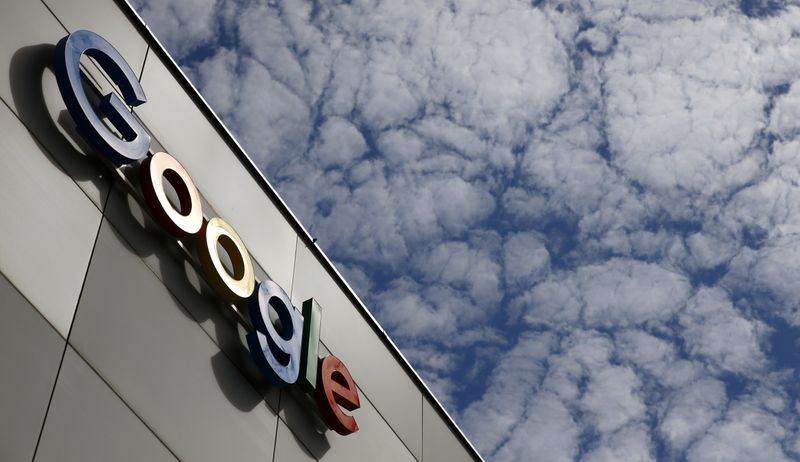By Paresh Dave and Sheila Dang
(Reuters) - Small rivals of Alphabet Inc's (O:GOOGL) Google say signs are emerging of more benevolent behavior from the online advertising leader amid accusations by the U.S. government and states that the company uses its dominance to thwart competition.
Among the dozens of software companies who rely on Google as an intermediary to ad buyers and sellers, six told Reuters that the company has become more collaborative on data privacy and other changes with them and industry groups, helping these entities instead of ignoring requests as they have done in the past.
John Nardone, chief executive of Flashtalking - which works with advertisers to personalize messages - said Google recently agreed to open a pipeline to crucial data.
It was an undertaking "that previously I might not have imagined they'd be open to," said Nardone, who publicly criticized Google's rigidity last year.
Two other companies also said Google this year enabled them to use its services in ways previously restricted, one involving using outside algorithms to analyze Google data and the other gaining sales opportunities Google had reserved for itself.
An executive at another ad software company said Google in the last year had not tried to poach any customers by offering discounted or early access to other products, tactics it had long aggressively pursued to lure lucrative accounts. Google also stopped using top executives to lure customers, the source added.
"The fangs are down right now," the person said.
The softening stances come during year-long antitrust investigations by the U.S. Justice Department and states' attorney generals led by Texas. Federal prosecutors are expected to sue Google as soon as next week on search and search advertising while their probe continues into ad software.
The search lawsuit will likely kick off years of court hearings over whether Google uses its outsized market power unfairly.
Despite the increased responsiveness, sources said Google's small rivals continue to answer questions from investigators about the market shares of Google's ad tools and the practices it uses to promote their adoption. Those rivals eagerly await a possible resolution, including the break up of Google's ads business in an attempt to weaken its control.
"They are both the dominant market operator while also a participant," one executive said. "It's hard to be a referee and player."
Google rejected the assertion that its approach to competitors has changed due to the investigations, saying it always has sought to collaborate. Texas' attorney general and the Justice Department declined to comment.
The antitrust scrutiny across Big Tech has prompted several concessions this year to smaller companies' longstanding gripes. For instance, Apple Inc (O:AAPL) started allowing browsers beside Safari as the default on iPhones, and Google on Monday vowed to better support alternatives to its Play app store on phones using its Android system.
To be sure, other complaints about market power have not been addressed, and Google and other online powerhouses continue to defend their dominance as beneficial to customers and consumers.
The state and federal investigations into Google followed complaints from advertising software companies and internet publishers that Google had cut them from prized data or selling opportunities. Google has said many of its actions have been needed to better safeguard users' information amid global scrutiny on online privacy.
Google is still pursuing additional protections, including preventing tracking of its Chrome browser users, that rivals fear will hurt their ability to personalize ads.
But rather than pursuing a "my way or the highway" change, Google this time around has publicly consulted rivals and demonstrated through its comments that its proposals for changing Chrome are amendable, two ad software executives said.
"That's quite reassuring," said Colm Dolan, CEO of publisher software maker Publift and a former Google salesperson.

Chetna Bindra, senior product manager at Google, said the company was "encouraged by the industry participation in the process and the positive feedback on a number of proposals."